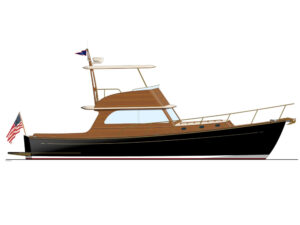Economic impact of boating to be studied in Canada
The Canadian Marine Manufacturers Association (CMMA) has announced it is teaming up with the Canadian Coast Guard to fund a first-ever study of the economic impact of recreational boating in Canada, with results expected as early as next spring.
Sandy Currie, executive director of the CMMA, headquartered in Oakville, Ontario, said that an economic-impact study is needed to provide the marine industry with more clout in getting government funding and approval for marine-related projects, as well as providing the Coast Guard with evidence that recreational boating should command more of its resources.
Currie said 50 percent of the funding would come from Discover Boating funds provided by the CMMA, the Ontario Marine Operators Association, the British Columbia Marine Trades Association, and the Atlantic Marine Trades Association. The other 50 percent will come from the Coast Guard. Currie declined to say what the total cost of the study would be.
A professional research and consulting team would be hired by the end of November, said Currie, and an executive summary should be available by March 2002, with the full report coming out in April. Currie said that portions of the report will have to be kept private due to concerns that competitive business information could become public. However, at least the executive summary will be made available to the public, he said.
Currie explained that the Coast Guard is part of the department of Fisheries and Oceans, and leaders of that government department tend to favor the shipping- and fisheries-related activities of the Coast Guard. However, Coast Guard officials themselves understand the importance and scale of recreational boating, said Currie, and will use the results of this study to justify activities that aid the recreational industry.
“We have a gut feeling that recreational boating is vastly more valuable to our economy than commercial shipping and fishing,” said Currie. He added that boaters currently pay a lot of taxes on purchases of fuel, insurance and other items, but they receive a relatively small portion of the money back in the form of government programs. However, the recreational boating industry has had no evidence to support these views, making this study very important. “We know nothing about the big picture,” said Currie.
Currie said he is optimistic the study will be completed on time and onbudget, but he added it may be difficult to get smaller businesses to participate. Smaller companies may not have the level of record keeping or the staff necessary. The timing of the study over the winter should mean that most businesses will have the time, during the slow season, to participate.
by John J. Kettlewell, Boating Industry International, www.boating-industry.com








